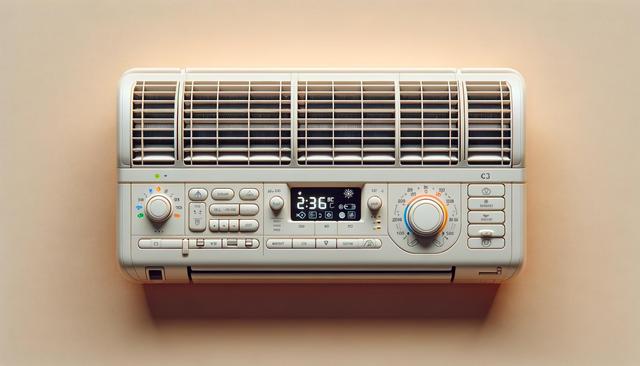Understanding the Different Types of Air Conditioners
There are several types of air conditioners to consider when selecting the right unit for your space. Each type offers unique benefits, and understanding their differences can help you make an informed decision. Split-system air conditioners are a popular choice for many homeowners due to their efficiency and quiet operation. These systems consist of an indoor and outdoor component, providing powerful cooling without requiring ductwork. For those looking for a simpler installation, ductless air conditioners for sale are often recommended. They are ideal for homes without existing ducts and allow for zoned cooling, which can enhance energy savings.
Alternatively, window air conditioner units are a compact option, suitable for small rooms or apartments. These are installed in a window frame and are relatively easy to maintain. Portable air conditioner models offer another flexible solution, especially for renters or those who move frequently. These can be rolled from room to room and typically vent through a window using an exhaust hose. For outdoor adventures or tent setups, a camping air conditioner provides a lightweight and convenient way to stay cool in nature.
Benefits of Installing an Air Cooling System for Home
Installing an air cooling system for home use can significantly improve indoor air quality and overall comfort. Modern systems go beyond simple temperature control, offering features that enhance the living environment. These benefits include:
- Consistent indoor temperatures throughout different rooms
- Improved air circulation and reduced humidity
- Energy-saving technology that lowers utility costs
- Advanced air filters that capture dust and allergens
Many units also come with built-in features such as timers, remote control access, and programmable thermostats. Ductless air conditioners for sale often include inverter technology, which allows the unit to adjust its cooling capacity based on real-time needs, leading to more efficient operation and reduced wear on the system.
Factors to Consider Before Buying an Air Conditioner
Choosing the right air conditioner involves more than just selecting a type. Several factors should be taken into account to ensure optimal performance and cost-effectiveness. First, assess the size of the space that needs cooling. Undersized units may struggle to maintain comfortable temperatures, while oversized ones can lead to energy waste. Also, consider the energy efficiency rating (EER or SEER) to estimate long-term operational costs.
Noise level is another important consideration, especially for bedrooms or quiet workspaces. Split-system air conditioners are often quieter than window or portable models. Additionally, examine the ease of installation and maintenance. Portable air conditioner units offer the benefit of quick setup, while central systems may require professional installation and periodic servicing.
Lastly, explore additional features such as smart connectivity or compatibility with home automation systems. Some users also value options like an integrated air conditioner air freshener, which can help maintain a pleasant indoor environment.
Maintenance Tips to Extend Lifespan and Performance
Proper maintenance is key to ensuring that your air conditioner continues to function efficiently. Regular upkeep not only extends the lifespan of the unit but also maintains air quality and energy efficiency. Here are some essential maintenance tasks:
- Clean or replace air filters every 1–2 months during use
- Clear debris from outdoor units and ensure adequate airflow
- Check refrigerant levels and inspect for leaks
- Schedule annual professional inspections
For split-system air conditioners, it’s important to clean the indoor unit’s coils and check the drain lines to prevent mold or water damage. Window air conditioner units should be removed and cleaned before storage if used seasonally. Likewise, portable air conditioner models benefit from regular filter cleaning and proper storage between uses. If you’re using a camping air conditioner, ensure it’s charged or properly powered, and clean it after each trip to avoid dust buildup.
Smart Features and Innovations in Modern AC Units
Today’s air conditioners come with advanced features that enhance convenience and control. Smart technology allows users to manage settings remotely via smartphones or integrate them with voice-controlled assistants. This can be particularly useful for adjusting temperatures before arriving home or monitoring energy usage throughout the day.
Some units include motion sensors that adjust cooling based on room occupancy, while others offer humidity control settings. A relatively new innovation is the air conditioner air freshener function, which releases subtle scents to improve indoor ambiance. These features are often found in ductless air conditioners for sale and high-end portable air conditioner models.
Additionally, eco-friendly refrigerants and energy-saving modes are becoming standard, reducing environmental impact and long-term costs. Whether you’re looking to cool a single room or an entire home, these innovations make it easier to maintain comfort without sacrificing efficiency.
Conclusion: Finding the Right Air Conditioning Solution
Choosing the right air conditioner depends on your specific needs, space constraints, and lifestyle. From split-system air conditioners for whole-home cooling to a camping air conditioner for outdoor comfort, there is a wide variety of solutions available. Evaluating factors like energy efficiency, maintenance requirements, and smart features can help you make a decision that balances performance with cost. Whether you’re upgrading your current air cooling system for home or investing in your first unit, taking the time to understand your options ensures long-term comfort and satisfaction.

Leave a Reply